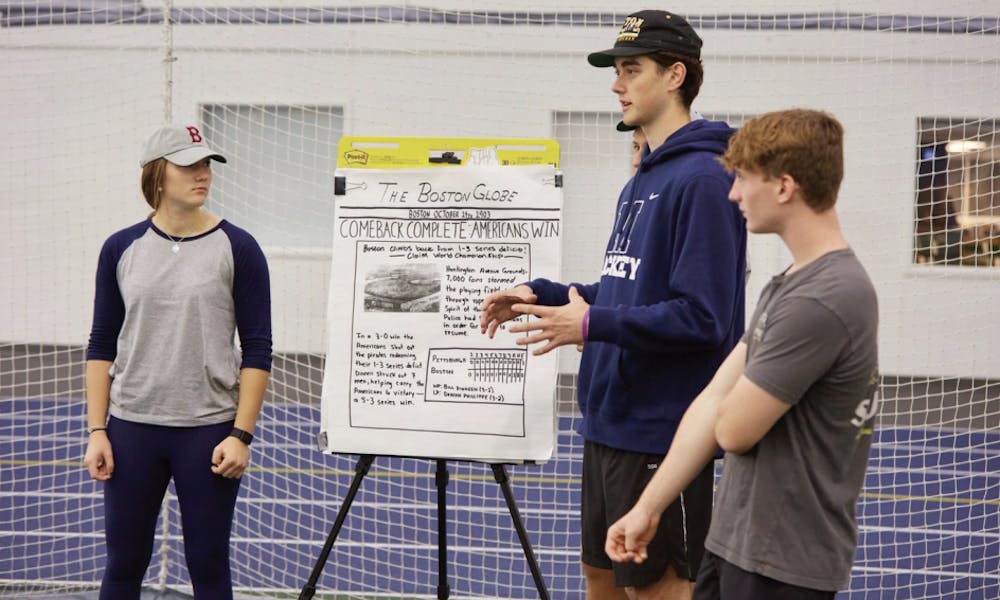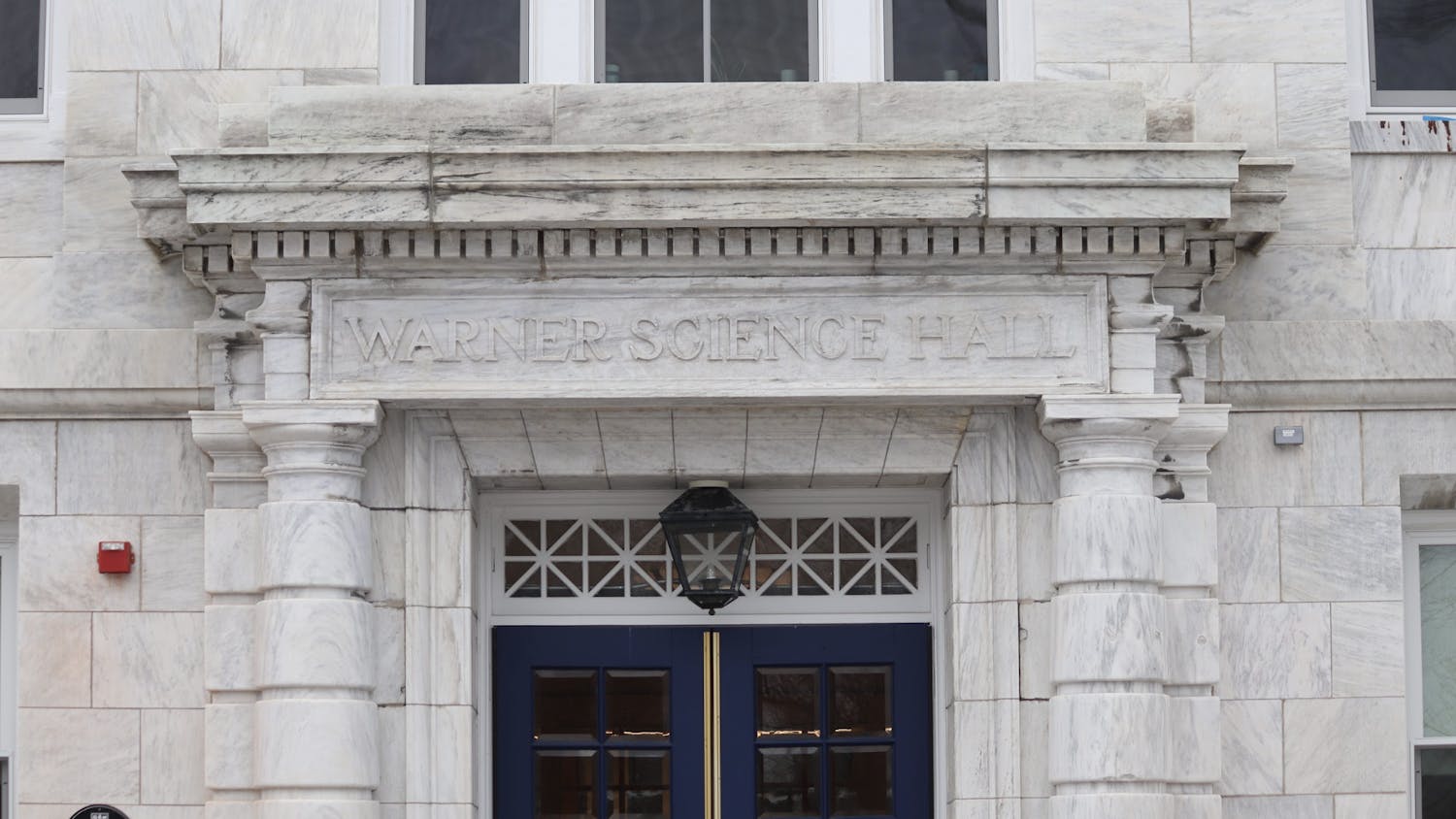The Humanities, Arts, Social Sciences and Natural Sciences are the core pillars of a liberal arts education. And yet a well-documented crisis in the humanities, evident in declining majors and enrollments, has swept the country and indeed the globe since at least the financial crisis of 2008.
National enrollment trends show students moving away from majoring in the humanities, and instead opting to enroll in humanities courses to fulfill college requirements or to satisfy non-major interests. While Middlebury has bucked some of these trends, we are not immune to such powerful currents. The danger, then, is that humanities departments will gradually become service oriented, offering classes that primarily fulfill distribution or college writing requirements. Such a shift would in turn dramatically affect staffing and the kinds of courses we can offer within our majors.
In 2020, we wrote a State of the Humanities Report at Middlebury College outlining these concerns and presenting wide-ranging data and analysis of shifts in both general and major enrollment numbers. At the same time, we made several recommendations as to how the institution might respond to these critical pressures. In this piece, we reflect back over our four years as the Center’s founding co-directors to consider both how the Center has sought to promote the humanities and, crucially, what can be done to secure its future.
The inauguration of the Axinn Center for the Humanities in 2019 brought Middlebury — with its historical strength in the humanities — back into alignment with peer institutions. Most of our peers had longstanding and well-endowed Humanities Centers that were actively participating in dialogue about this national crisis. We immediately joined these critical conversations and benefited from connections with regional and national partners. Our work in building the Center has been supported by a moving cast of dedicated faculty members on our Steering Committee and by a succession of excellent student Humanities Fellows, who have helped us with everything from providing data for our 2020 Report to creating an archive of photographs and Instagram posts from our major events and activities (follow us @middleburyhumanities).
In establishing the Center, we sought to create a vibrant hub for the innovative, yet often siloed, work being done by faculty and students in humanities departments and programs all over campus. We focused on two central goals: supporting faculty research and inviting novel humanistic pedagogy. One of our first actions was to establish a yearly Faculty Research Seminar centered around a particular theme. Last year’s organizing theme was “What is Human?”; this year’s is “Toxicity”; next year’s will be “The Body.” Faculty members from a diverse range of humanistic disciplines gather monthly to work on this theme in relation to their own specific research, with the Seminar culminating in a public panel presentation during the following fall.
All humanities classes teach crucial skills that are highly sought-after by employers, as our report shows, such as critical thinking and analysis, persuasive writing and oral presentation, creative and interdisciplinary thinking, global awareness of other cultures, problem solving, and independent, original research. With the importance of these transferable skills in mind, our new contribution to humanistic pedagogy on campus has been the introduction of the Public Humanities Labs (PHL) Initiative. The PHL Initiative supports faculty as they figure out new ways to integrate humanities skills and expertise into public facing and/or community curated projects that address topics of cultural, social and intellectual importance.
These projects may involve storytelling, oral history, public writing, digital humanities, ethical inquiry, medical humanities and many other areas of knowledge. Each PHL course integrates both experiential, hands-on work of some kind and a public-facing output, whether in-person or digital. In 2021, the Center was fortunate to receive a grant from the Davis Educational Foundation to support the PHL Initiative for three years. With this generous funding, in addition to early seed money from the Fund for Innovation, we have funded forty-three new or redesigned classes since the pilot semester in 2021, including on the Bayeux Tapestry, Baseball, Society, and US History, and Education in the Caribbean. Our PHL Initiative has been recognized nationally as a leading replicable model for public humanities pedagogy in undergraduate institutions, as noted by a 2023 National Humanities Alliance Report.
The Center’s commitment to public humanities extends to our support of varied speaker events on campus. This semester, we organized three major lectures focused on critical humanistic topics. On March 6, in collaboration with the Department of History, we invited Jeremy Greene, professor of Medicine and the History of Medicine at Johns Hopkins University and practicing physician in East Baltimore, who spoke about the limits of telehealth in medical practice. And on April 12, Grace Cho, professor of Sociology at the College of Staten Island, CUNY, will read excerpts and discuss themes from her award-winning book “Tastes Like War”(2021), a hybrid text about food, memory, mental illness and trauma.
Our exciting initiatives and programming have directly touched the lives of hundreds of students and dozens of faculty members across campus. This year too, the Center has benefited from the acquisition of 115 Franklin Street — now established as Humanities House — a space which supports and facilitates creative humanistic collaborations within our classes and faculty research groups.
With the national and global humanities crisis looming large, however, we must be proactive in protecting one of Middlebury’s core but eroding educational pillars. The Center is seeking a permanent endowment that would ensure the stability and continuation of its work for the coming generations of faculty and students, placing the college on par with its liberal arts peers.




